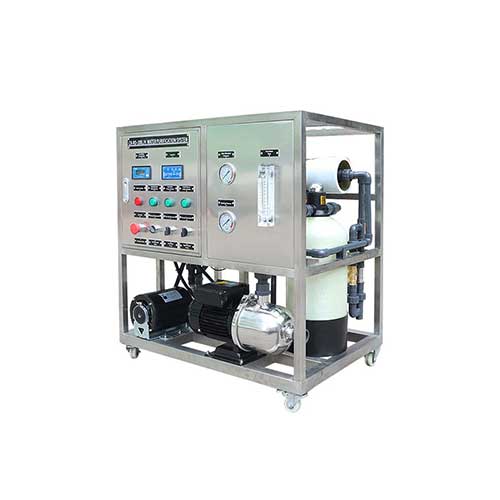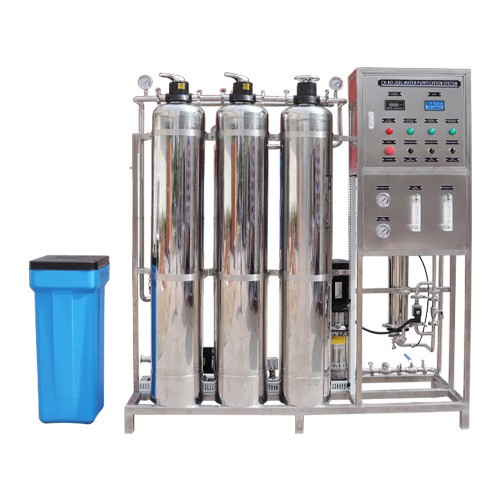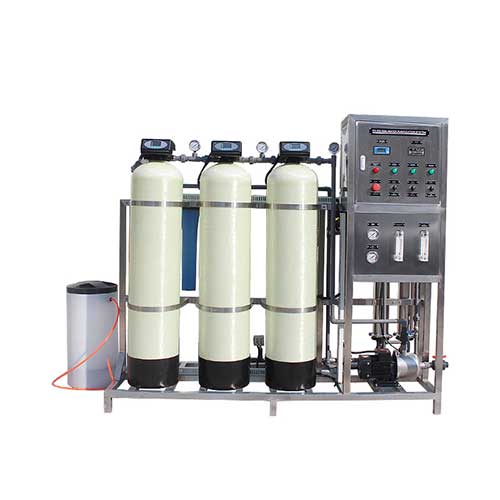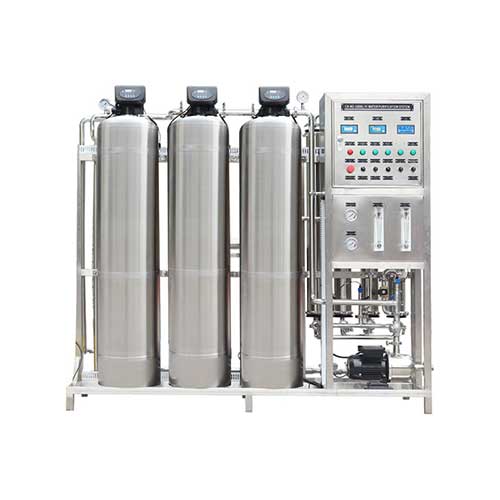DISCOVER BEST IRON FILTER FOR WELL WATER FROM PROFESSIONAL SUPPLIER
Chunke is professional Iron Filter for Well Water supplier in China. Too much iron is a common water problem in households if your water source is from well water. While municipal water treatment often reduces the amount of iron found in city water supplies, household water from unregulated private wells may contain higher mineral levels, including greater proportions of iron. Because of this, whole-house filtration systems are often required for issues associated with iron in well water.
How to remove iron from well water?
Expecially, iron removal from well water and borehole water. Iron is one of the most common contaminants faced by well owners. From muddy-colored glasses of drinking water to bright orange streaks in toilets sink and bathtubs, iron leaves a colored stains, discoloration, and foul tastes after contamination. Though it is one of the important water problems challenge faced by well-owners, there are many solutions to rid your water of this unwelcome mineral. So, when you read our article, you will be clear how to remove iron from water?

How can i understand my water have iron?
Chunke suggested you to send sample water to professional laboratory to test your water from well. It is the best and certain way to understand, your well water has iron or not. The amount of iron in water is measured in milligrams per liter or parts per million (ppm). Typically, problems begin to occur when the ppm of iron is above 0.3. Get your water tested and consult with a professional to begin exploring your treatment options.

But also you can make some observation and test by yourself. For example, you check your water color. You can put your water in white color cap and wait for 1-3 days and check. If colors is going to yellow, orange or brown, it means that your water has iron. Color change comes oxidation of iron, ferrium or some other metallic matters in water. Also it shows that your water has iron bacteria inside.
Iron might also result in staining of sinks, tubs and toilets. Specifically, red, brown or yellow discoloration can be due to the oxidation of iron. Depending on the type of iron, water may come out of the tap clear, but leave stains behind on plumbing fixtures.
Another way, check taste of your water. Iron cause metallic taste. When you drink your water, if you get metallic taste, your water might have iron or piping or stocking has problem.
How does iron get into our water?
If your water source is well water or borehole water, iron primarily, enters into your well water by seeping in from the earth’s crust. Iron is one of the most frequently encountered minerals in the earth, making it a pervasive nuisance for well owners across the globe. Heavy rainfall penetrating through the soil will dissolve iron, leaving iron deposits into the underground aquifers. As snow or ice melts and penetrates through the earth into groundwater supplies, it introduces iron into well water sources. Making up over 5% of the earth’s crust, iron is one of the earth’s most common and widespread natural resources, so its rampant presence in well water is unpreventable, no matter how diligently a homeowner maintains their well. Iron exists in wells in three forms: ferric, ferrous, and bacterial. Each manifestation of iron stipulates a different iron filter or treatment process.
Iron can also enter your well water supply from exposure to rusty, corroded plumbing. Aged iron pipes and corroded iron fixtures will leave brown-colored flecks in your water and orange stains on your drains. Iron casings within your well will begin to rust over time. When iron is exposed to oxygen and water, the iron begins to oxidize and deteriorate. This is because prolonged exposure to the elements causes iron to break down and convert into rust. This can be remedied by replacing the pipes running from your well. If your well is old and in disrepair, drilling a new well altogether can alleviate your iron woes.
How does iron in water damage your health and your home ?
A little iron in your tap water is harmless and happens all the time. But if your home taps are clearly running rusty orange water, it’s not just the color or taste being affected. Too much of anything is a bad thing and too much iron in your water can have some notable detrimental effects on both your family’s health and your pipes and appliances. Here are some of the risks of iron in your water.

Hair Becomes Discolored and Brittle
Drinking iron-contaminated water may not make you sick, but bathing in it is very bad for your skin and hair. Every time you shower or your children take a bath, your skin and hair are soaked in oxidized (yellow to red) or unoxidized (still clear) iron. This metal mineral leaches moisture from your body when you should be absorbing moisture to stay healthy and vibrant.
This can cause your hair to become dry and brittle as the moisture is leached out of it over and over again. Hair will eventually lose its soft texture and become rough to the touch. Oxidized (colored) iron in the water acts like a harmful peroxide. It will darken light hair and add an orangey-red tint to hair of all colors in addition to drying and roughening the texture.
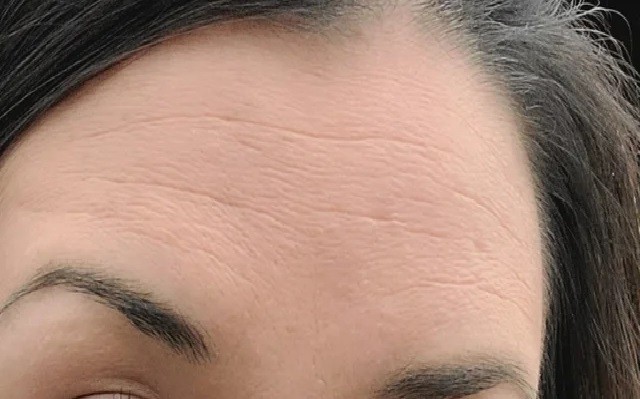
Dry Skin and Early Wrinkles
Of course, one of the risks of iron in your water is that it doesn’t just dry out your hair. Each time you bathe, your skin is soaked in water that takes away moisture instead of adding it. You will notice your skin drying and needing more artificial moisturizers to stay healthy. Over time, skin over-saturated with iron will begin wrinkling early and can take long-term damage.

Clogged Pores and Acne
The iron minerals in the water do another number on your skin. They can clog your pores even if you’re using all the right soaps and cleansers. Iron in your pores stops the oil from clearing correctly which can begin to cause an increasing acne problem, especially for family members who tend toward oily skin. Watch out for acne in areas where acne normally doesn’t occur because your skin is being artificially clogged.
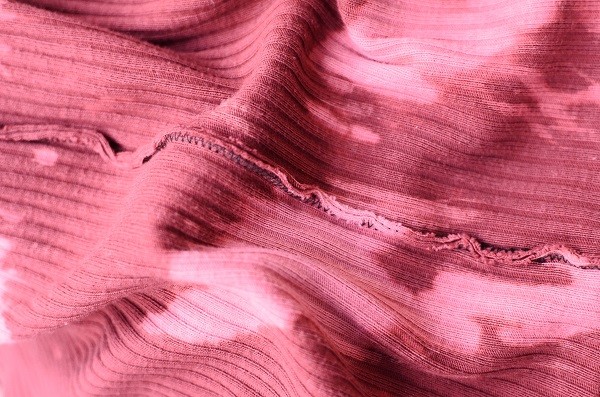
Clothes Discolor and Stain in the Wash
If the iron in your taps is oxidized, showing color, or oxidizes while running, then it can also damage your clothes and even your light-colored dishes. These are not simple discolorations. Clothing washed in iron-contaminated water can discolor, especially lighter colored clothing where even light yellowing becomes immediately apparent. This discoloration can become permanent, uneven staining, causing iron in your water to ruin your clothing even when your washing machine is functioning properly.

Food is Bitter and Dark When Cooked in Iron-Rich Water
Cooking with iron-contaminated water is no treat either. That rust-discoloration turns anything cooked in your tap water to a darker or blackened color. You may notice that any coffee, tea, or even orange juice looks discouragingly black or brown. Vegetables cooked in iron water turn black as they boil.
Worse, iron in the water gives everything an unpleasantly bitter taste. This is often why homes consider iron to be harmful to ingest, as it can render food inedible by taste and color alone.
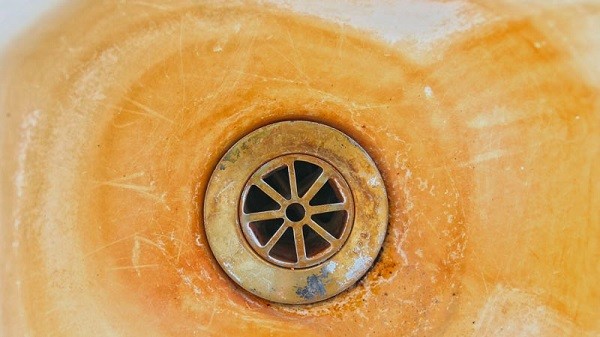
Pipes Clog and Corrode More Quickly
Last but certainly not least are the risks of iron in your water to your pipes and appliances. When iron flecks are flowing through the water, they can catch and stick to the pipes and water lines along the way. This builds up to cause restriction, which can affect your water pressure and eventually causes clogs. Rusty water can also accelerate the metal corrosion and deterioration of other metal pipes so that they become both clogged and damaged more quickly.
How does iron filter for well water system work?
The best way to remove all iron from your water source is reverse osmosis water filtration system. Reverse osmosis is not only removing iron, but also remove bacteria, viruses, harmful dirty all matters in water.
To understand how does reverse osmosis system work, please watch our video.
If your water is clean and you have just iron problem, you can use iron remove multi media filter systems. For this kind of filter contains iron remove media in tank. For example, greensand media remove iron from your water.
In some cases, we have to oxidize ferrous iron before filtration to increase efficiency of filtration.
What is the advantage and benefit of iron filter for well water system?
In addition to high levels of iron, well water may contain sediment and various other contaminants such as nitrate, nitrite, and arsenic. Another common issue is hydrogen sulfide, which causes a rotten-egg smell (sometimes referred to as sulfur water).
Fortunately, well water filtration systems, in addition to removing iron, can also help minimize other issues with your water.
I have water softener, can a Water Softener Remove Iron From Well Water?
Firstly, water softener is responsible to remove hardness. In some cases, it can help, but water softener is not designed to remove iron from water. Water softener systems use ion-exchange resin to exchange Calcium and Magnesium ions, which gives hardness to water, along with sodium ions.
What Are the Best Filtration Systems for Removing Iron from Well Water and Where can I buy?
Chunke Reverse Osmosis Systems are best choice for you to remove iron from your water. Our company is located in Guangzhou, CHUNKE. We can send our products all countries in the world.
Today, visit our web-page and find best solution for iron filter for well water:
Is iron in water dangerous?
Drinking low levels of iron is not dangerous and will not have an adverse impact on your health. Iron is regulated as a secondary contaminant by the EPA. Secondary contaminants are contaminants with aesthetic and cosmetic consequences, like foul tastes and stains, but are not considered to be dangerous to consume. Iron itself is essential to a healthy, balanced diet and contributes to red blood cell production and transports oxygen throughout the body. Spinach, eggs, lentils, and shrimp all are iron-rich foods that provide your body with this vital mineral.
If you are consuming very high concentrations of iron, there is a possibility of toxicity. Hemochromatosis is an inherited medical condition that prevents your intestines from properly absorbing iron. Hemochromatosis can lead to lethargy, weight loss and confusion, and cirrhosis of the liver. However, hemochromatosis is a hereditary condition, and drinking well water with high concentrations of iron cannot give you the disorder.

